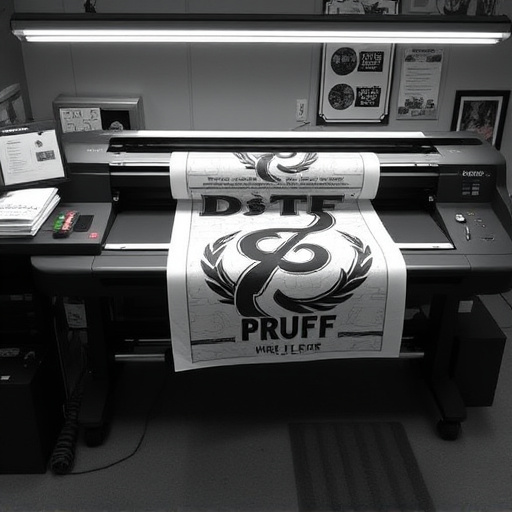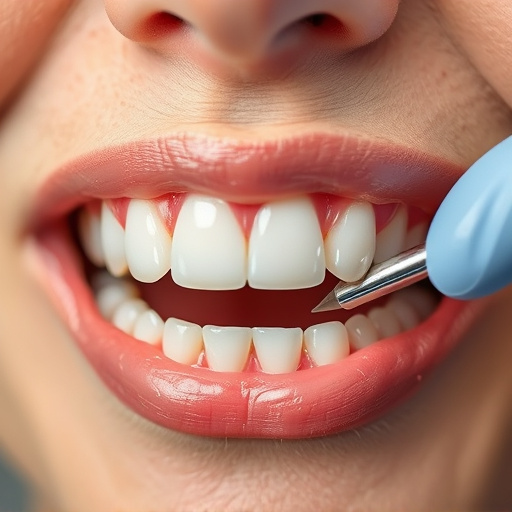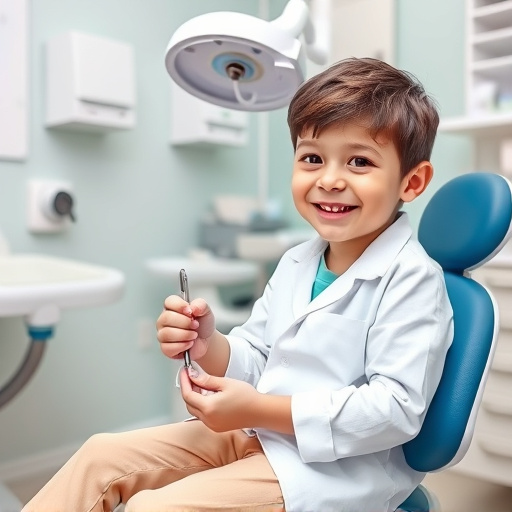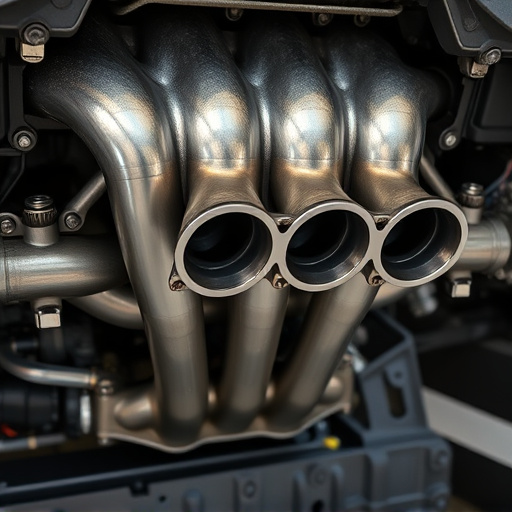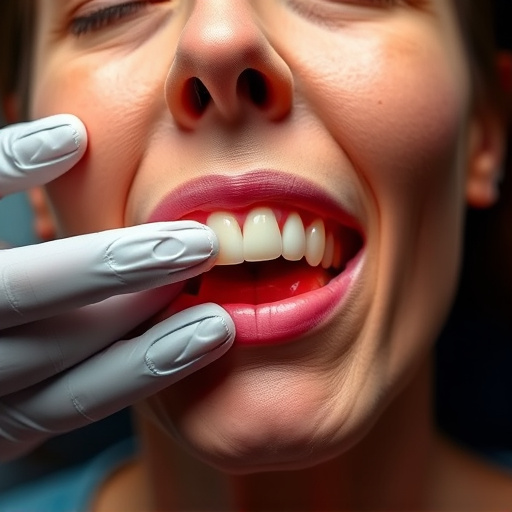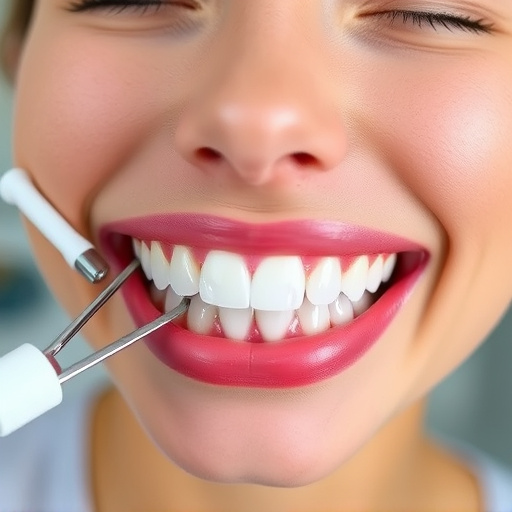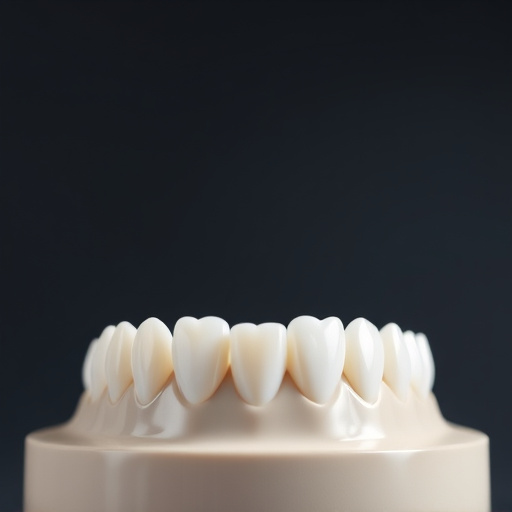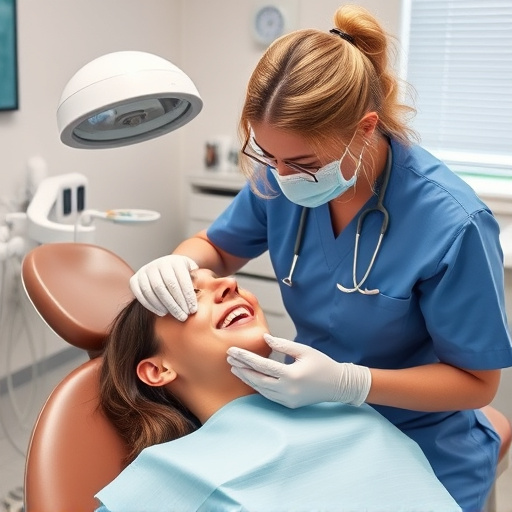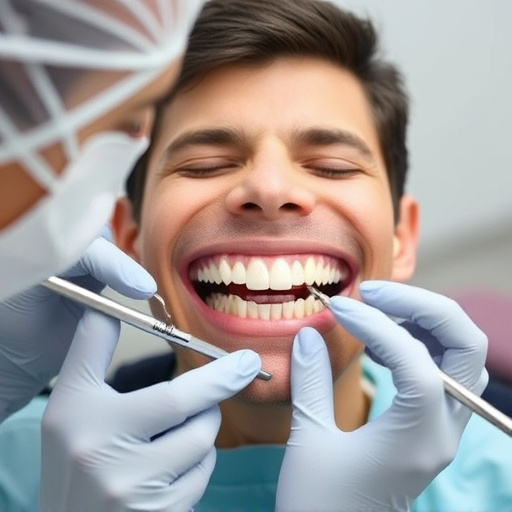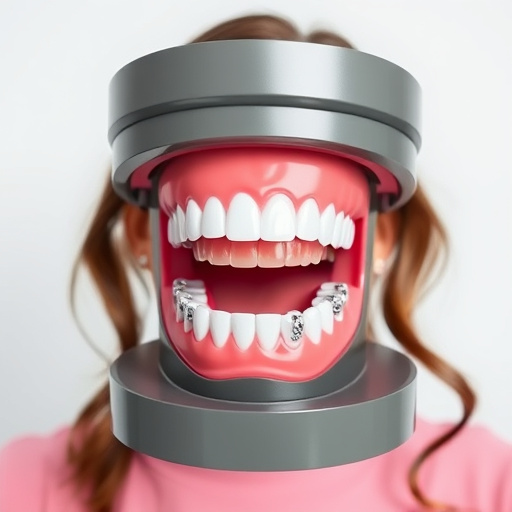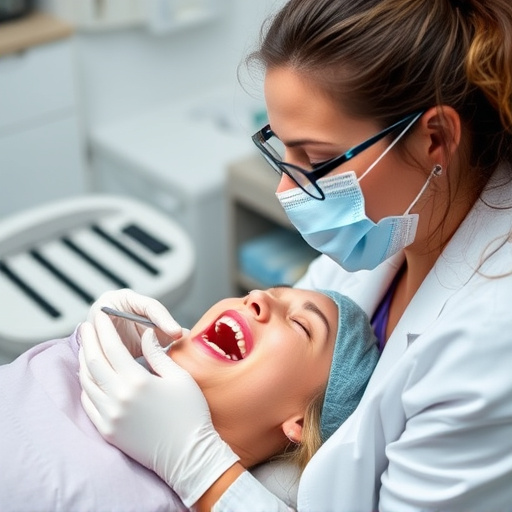Emergency dental care acts as a safety net for oral health during crises, addressing severe issues like pain, bleeding, or broken teeth. While unexpected events may disrupt regular dental routines, prioritizing preventive dental care—including check-ups, cleanings, and teaching good hygiene habits—is vital for managing potential problems long-term. Combining this with consistent home care and a mindful diet enhances prevention efforts, ensuring basic oral health needs are met until normal routines can resume.
In times of crisis, emergency dental care is more than just a lifeline; it’s a crucial component in maintaining optimal oral health. This article delves into the critical role of immediate dental intervention and its synergistic relationship with preventive dental care. We explore why proactive measures, such as regular check-ups and proper hygiene, are essential weapons against unexpected oral health crises. By understanding these dynamics, you can better navigate unforeseen events while safeguarding your mouth’s well-being.
- Understanding Emergency Dental Care: When and Why It's Crucial
- The Role of Preventive Dental Care in Crisis Management
- Tips for Maintaining Oral Health During Unforeseen Events
Understanding Emergency Dental Care: When and Why It's Crucial
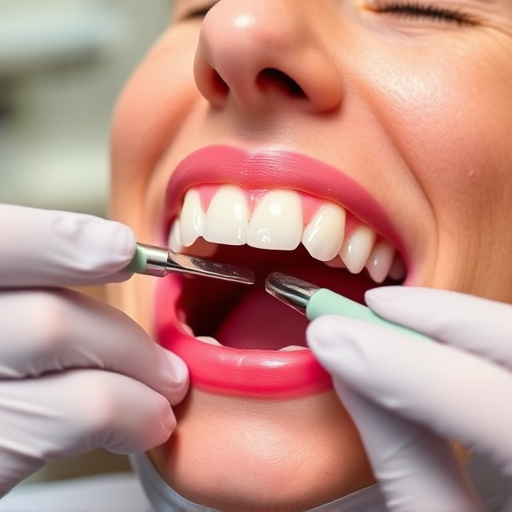
Emergency dental care plays a pivotal role in maintaining oral health during unforeseen crises. It’s more than just treating acute toothaches or mouth injuries; it’s about ensuring your overall well-being in moments when regular dental offices might be inaccessible. When faced with dental emergencies, such as severe pain, bleeding, or a broken tooth, immediate attention can prevent further complications and preserve the structure of your teeth.
Understanding emergency dental care is crucial because it acts as a safety net for preventive dental care. Regular check-ups and routine procedures like dental bonding and dental implants, which are part of preventive dental care, might be delayed during unexpected events. In such scenarios, emergency dental services ensure that basic oral health needs are met, averting potential long-term issues. By addressing immediate concerns, these services help maintain the balance of your oral health until you can resume normal preventive care routines.
The Role of Preventive Dental Care in Crisis Management
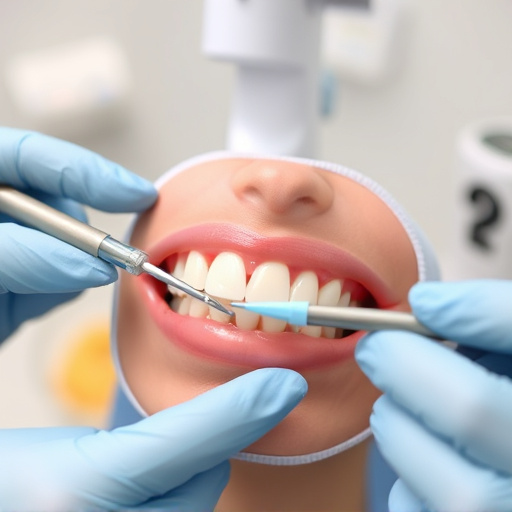
In times of crisis or unexpected dental emergencies, it’s easy to overlook the importance of preventive dental care. However, maintaining a robust routine oral hygiene regimen is crucial for managing potential issues and ensuring long-term oral health. Preventive dentistry forms the cornerstone of any comprehensive dental care strategy, especially during challenging periods. Regular visits to your dentist for check-ups and cleanings can detect early signs of decay or gum disease, allowing for prompt treatment before they escalate into more serious problems.
Children’s dentistry also plays a vital role in crisis management, as it teaches young individuals the importance of good oral hygiene habits from an early age. Routine oral exams during these formative years can help identify and address issues like tooth decay, misalignments, or developmental abnormalities, thereby preventing future complications. By prioritizing preventive dentistry, individuals can avoid costly and time-consuming emergency treatments and maintain a healthy smile even in the face of adversity.
Tips for Maintaining Oral Health During Unforeseen Events
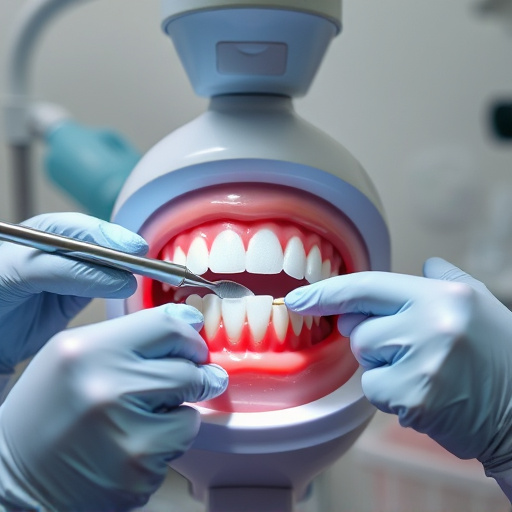
Unforeseen events can disrupt our daily routines, but that doesn’t mean oral health should take a back seat. During crises, maintaining preventive dental care becomes even more vital. Start by keeping up with regular teeth cleaning and visits to your dentist; many emergency dental care services offer quick appointments to address urgent issues while also providing guidance on long-term oral hygiene practices.
In addition to professional care, adopt simple habits like brushing twice daily with fluoride toothpaste, flossing regularly, and using mouthwash to prevent plaque buildup and gum disease. Stay mindful of your diet, limiting sugary snacks and beverages that can contribute to tooth decay. Remember, restorative dentistry while crucial, is often more effective when paired with consistent preventive dental care practices.
Emergency dental care plays a pivotal role in maintaining oral health during crises. By understanding when and why it’s crucial, along with adopting preventive dental care practices, individuals can better manage their oral well-being during unforeseen events. These strategies not only help mitigate immediate dental emergencies but also contribute to long-term oral health stability. Incorporating these tips into your routine ensures that even in the face of crisis, you can maintain a healthy smile and overall well-being.
